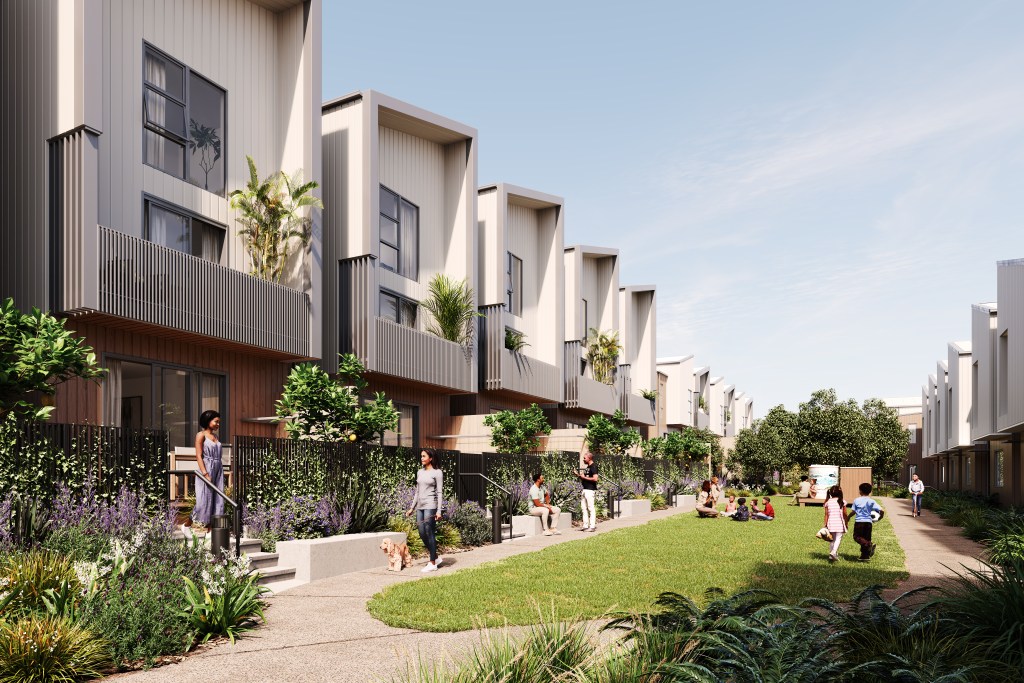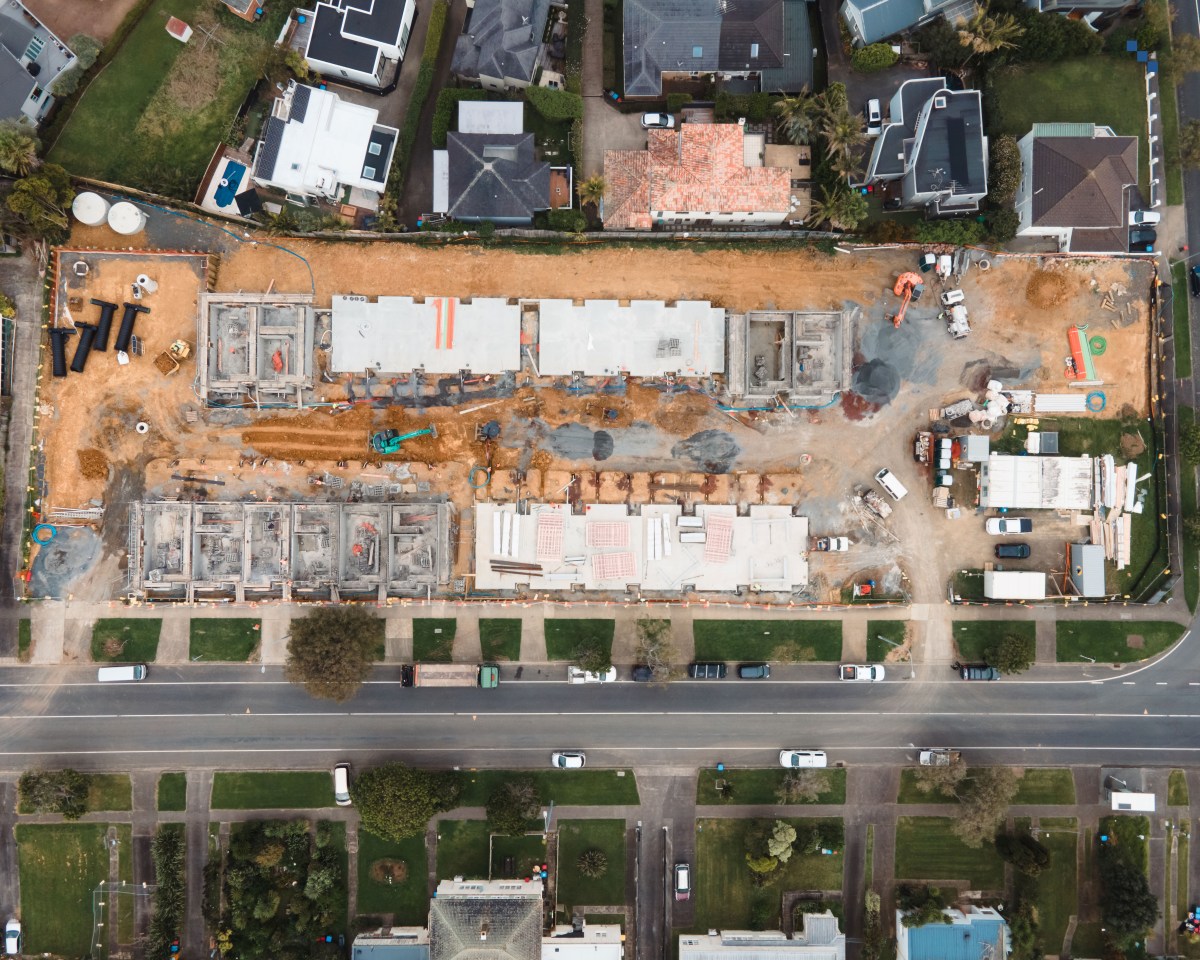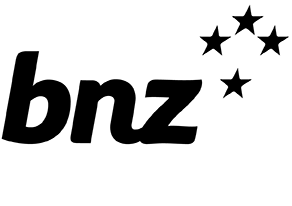You might not be able to tell from the ground, but an unassuming block of homes underway in Central Auckland is at the fore of financial equity in New Zealand.
The 24 homes on Ngāti Whātua Ōrākei land are the first to be built under a new BNZ framework to allow for mortgage lending on communally owned property, previously put in the too hard or too risky basket by mainstream banks.
The new model, developed in collaboration with the iwi, means hapū members who meet BNZ’s normal home lending criteria can secure a BNZ home loan for papakāinga housing on land owned by the Ngāti Whātua Ōrākei Trust at standard home loan interest rates.
BNZ also provided a $20m social loan to support construction of the homes, which are expected to be completed this year.
Historically, obtaining finance for housing on Māori-owned land has been challenging.
The unique ownership structure and restrictions on land transferability often meant that it couldn’t be used as security for loans, creating a significant barrier for Māori home ownership.
Those who went ahead with building on their whenua often had to secure funding from secondary lenders at far above market interest rates.
Ngāti Whātua Ōrākei Whai Rawa chief executive Grant Kemble said the framework had made home ownership more accessible for its whānau.
“BNZ’s commitment to work alongside us, understand our vision, and persevere through complex legal arrangements has been commendable.
“For our people that will move into these new homes, it will be the realisation of a dream: the security of home ownership on their whenua.”
The inability to build houses on ancestral land has acted as somewhat of an economic handbrake for many Māori. For many, home ownership is the first step towards prosperity in New Zealand, that first asset able to be leveraged for other opportunities and investments.
Having a warm and dry home to live in is also key for a healthy life, as is attachment to the community you live in.
The bank said creating a solution was easier said than done, having spent several years developing the solution supported by Ngāti Whātua Ōrākei and with pro-bono legal advice from Buddle Findlay and Russell McVeagh.
The new framework employs standard leasehold mortgage lending practices, underpinned by a confidential Deed of Understanding. This means that in the face of any challenges, the land integrity and control is preserved with the iwi or hapū – in this case Ngāti Whātua Ōrākei, who would take over in the event of a distressed mortgage.
This approach balances the bank’s security requirements with the enduring land rights of the iwi.
BNZ head of Māori business growth Whetu Rangi said there was a fundamental difference in attitudes towards land in the Māori world and banking world.
“From a traditional Māori perspective you don’t own land, you’re merely a custodian of it and now through the Māori Land Court, that philosophy is still held somewhat. That’s where you get blocks of land owned by thousands of shareholders,” Rangi said.
“As a financial institution, taking security over that is difficult because you’re not dealing with all the shareholders, you’re generally dealing with one individual or one organisation, so there’s apprehension to take security because you genuinely don’t know if this organisation or individual has a right to give that land up as security.”

Rangi said the bank had gained comfort in its ability to take on these assets as security, but that it simply understands Māori organisations better than it did in the past.
“We are taking extra steps, working with broader stakeholders to ensure we’re protecting the end buyers and in the unlikely event of a default, we see the need to engage with stakeholders, and 10-15 years ago, you probably wouldn’t have seen that happen.”
BNZ reckons the framework has promise for broader application among other Māori organisations and the approach has been shared with other banks to help expand access to finance for development on Māori land across New Zealand.
There are a few reasons for sharing the product, including that the more banks lending on a development there are, the more palatable the risk for lenders.
“Having all the banks being involved also has a benefit for homeowners in that they have a diverse funding pool, they can go to every bank and it’s actually a competitive situation so that we don’t have a monopoly in a certain area on a certain type of property, which is better for prospective homebuyers.”
While the affluent Ngāti Whātua Ōrākei iwi is the first cab off the rank, Rangi said BNZ was working with wider industry stakeholders on how to sustainably replicate the model across the country and on more typical rural Māori land.
Rangi said opening up greater home ownership in the regions through the scheme would have a wider positive impact on rural communities.
“I personally think that opportunity is huge, and it presents the opportunity to create greater economies within the smaller regions around New Zealand where the majority of Māori land is available.”
BNZ chief executive Dan Huggins said the prosperity of Māori, and Māori businesses, was vital to the prosperity of Aotearoa.
“Considerable thought has been invested in designing this framework to be as flexible as possible, and it has been shared with other financial institutions in the hope of extending its benefits to more iwi across New Zealand.
“We are committed to helping New Zealand and New Zealanders to thrive and prosper. Our collaboration with Ngāti Whātua Ōrākei is another example of how we can achieve this. We hope this example will help more iwi to assist their people into warm, dry homes of their own.”





Fantastic news! Throughout Aotearoa, Maori Land owners have suffered huge barriers through inability to borrow.